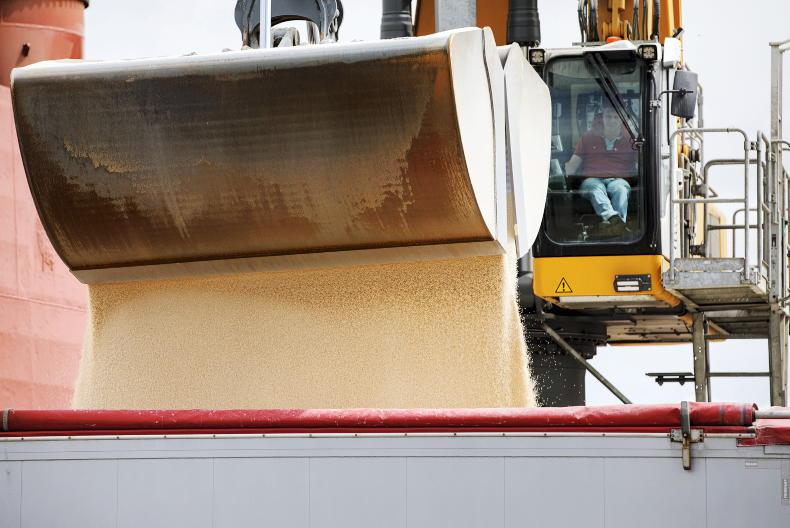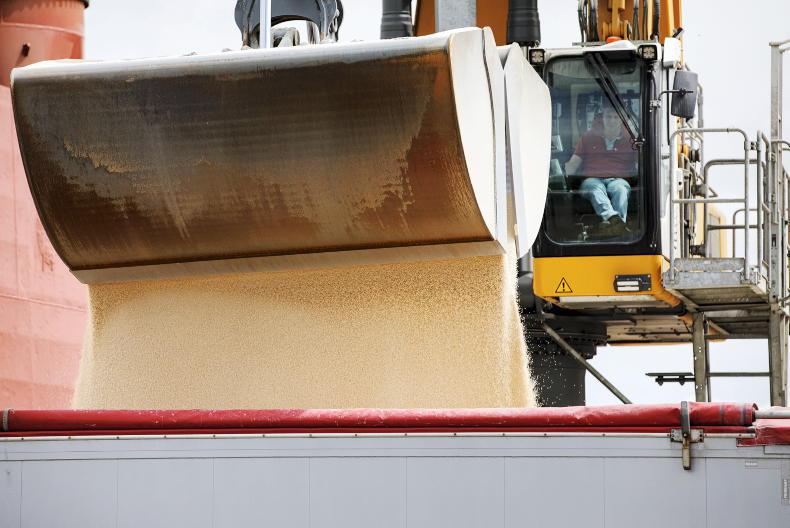Regardless of which side of the debate you take, the ineffectiveness of Brussels to deal with the re-licensing of glyphosate has severely undermined the credibility of our political representatives and the EU institutions.
From today (Thursday), there are just 22 days left before the current glyphosate license expires on 15 December. Leaving such a critical decision to the 11th hour is no way to do business, let alone make critical policy decisions.
Glyphosate is a key part of the food security jigsaw and the implications of an EU ban would be felt not just within member states but across the world. If the EU is to impose a ban on the use of glyphosate within its member states, it would also have to ban imports of crops such as GM maize, soya beans and cotton into the EU. The same logic applies to the importation of beef produced using growth hormones, which are banned within the EU.
But despite being just 22 days away from the ending of the licence, I am not aware of any serious analysis having been carried out as to the implications that such a scenario would present for EU agriculture.
The effects of a ban on glyphosate would not be limited to the tillage sector. Without access to imported maize and soya beans, the livestock sectors – particularly pig and poultry – would face serious challenges.
So, how have we managed to end up at this cliff edge? Unfortunately, it is an all too familiar story where science is trumped by populism in the political arena.
At European Parliament level, we have seen many MEPs undermine the European Food Safety Authority and the European Chemical Agency by ignoring scientific evidence on the safety of glyphosate. They have chosen instead to hide behind by a European Citizens’ Initiative petition entitled Ban Glyphosate and Protect People and the Environment. With over a million signatures, those who instigated the petition deserve to have their voices heard.
However, in recognising its validity, we should not be afraid to question the extent to which those who signed the petition were properly informed of the facts.
The petition relied heavily on a study carried out by the International Agency for Research on Cancer (IARC) from 2015, which concluded glyphosate was a “probable human carcinogen”. This study mainly examined formulates glyphosate and not the active itself, and some of these adjuvants accompanying the active are known to be problematic in themselves.
The limited examination of the glyphosate active involved exorbitant rates that could never happen in practice.
The bank of peer-reviewed studies that showed the product to be safe was ignored along with a study published in the Journal of the National Cancer Institute (JNCI), which found there was no association between glyphosate and any solid tumours or lymphoid malignancies.
Meanwhile, some member states stand accused of political hypocrisy. Thankfully, the Irish Government and Minster for Agriculture Michael Creed have remained steadfast in adopting a science-based approach. However, other member states have continually opted to push the responsibility and ultimately blame back on to the European Commission.
Clearly few have learned the lessons from Brexit as to the implications of a blame-Brussels strategy.
Next week, the Commission will resubmit its proposal for a five-year extension to the current licence to an appeal committee of higher level members. It is logical to think that positions will not have changed since the previous vote just a few weeks ago and another “no opinion” position will be adopted.
This presents a scenario where the Commission will be forced to rule on the issue ahead of the 15 December deadline and one where our political representatives can wash their hands of responsibility.
Given what is at stake in terms of food security, this is just another example of failed politics and an opt-out of decision-making by the European Parliament, which has long campaigned to be taken seriously as an EU institution. This was achieved by co-decision-making and yet when a decision is required that isn’t populist, it effectively opts out and passes the decision back to the European Commission.
Finally, while much is being made of how the European Citizens’ Initiative mobilised such a large number of votes for its petition on this issue, we need to ask should we have a society that is governed by popular petition or fact-based argument?
Where an issue generates widespread public support, that has to be recognised and factored into any debate, but it can never alone be the basis for decision-making.










SHARING OPTIONS